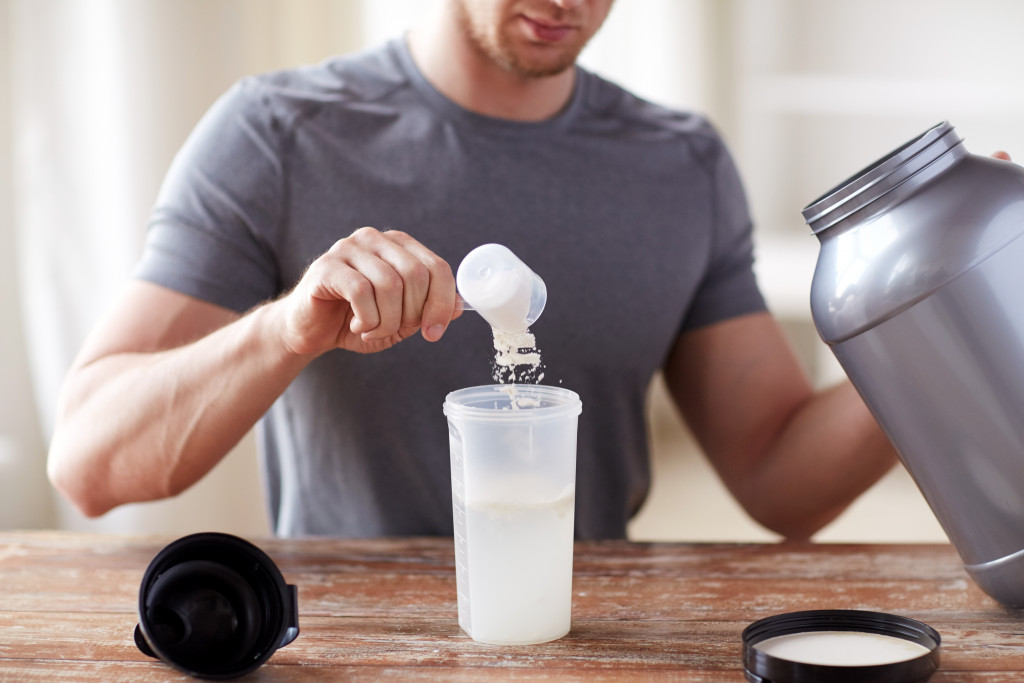Fitness and diet fads change. However, maintaining a lifestyle with moderate physical activity and a balanced diet are the undisputed methods to keep your body healthy regardless of age. Still, there are lifestyle choices many deliberately make that draw them further from their fitness goals. Many people sleep late, eat junk, and idly scroll through their smartphones to no end.
Add to that the higher exposure to free radicals in the environment like air and water pollutants and unprecedented stress levels from personal to significant world events. Whether you like it or not, these diminish the benefits you get from eating healthy and working out to a certain extent. It only makes sense how health-conscious folks resort to extra measures. Often, some pay more frequent visits to their physicians and link their health data to their fitness gadgets to quell any perceived health threats.
Your Body Needs More
Today’s exercise nuts agree their definition of staying fit only grows deeper. They are more receptive to more deeply understanding the consequences of their health choices, whether in the food they eat or their exercise regimens. And so, many have gone to the point where a simple whey-protein-and-fruit blend no longer suffices their post-workout needs. These supplements, some of which many are not aware, are taking center stage when it comes to quenching that post-exercise thirst:
Collagen

Collagen is more popularly known as a protein that the human body naturally produces to maintain the elasticity of muscles, bones, and skin. The body enables collagen production with the intake of food containing protein, zinc, and copper. You can typically find these nutrients in meat and dairy products like eggs, pork, and chicken rinds, and several types of seeds, beans, peas, and lentils. The body’s ability to produce collagen wanes as it ages, though.
It only makes sense that collagen supplements are all the rage these days. Collagen is usually marketed in its capsule form for its beauty-enhancing benefits like improving the sheen and lush hair and the glow of facial skin. Still, collagen in its soluble powder form is becoming a staple increasingly among the diets of athletes and people who lead an active lifestyle.
Apart from delaying signs of aging like the appearance of wrinkles, pigmentation, and bone degeneration, regularly supplementing your diet with collagen protects your joints from swelling and promotes muscle growth. Because collagen plays a big part in strengthening the joints, particularly the cartilages, it hugely impacts physical performance. And because collagen forms an integral part of the protein makeup of blood vessels, its adequate supply promotes an uninterrupted cardiovascular function if paired with a diet leaning toward good cholesterol intake.
Collagen supplements are usually infused with flavors to appeal to their target market. Some come with flavors that complement your morning coffee or your midnight milk. Still, many are catered to match common protein shake staples like chopped bananas, chocolate powder, and frozen berries.
Nutritionists have no one recommended time to take collagen and advise you to take it as you please. But if you’re taking it for the particular purpose of preventing joint pain, pop in a few scoops and incorporate it into your post-workout shake with an immersion blender.
Hemp
Hemp is an approximate cousin of the cannabis plant but has relatively lower levels of tetrahydrocannabinol, making it a less restricted choice for commercial distribution. As it still branches out from the same species, hemp shares almost identical benefits as cannabis, including promoting muscle relaxation. Therefore, it is widely popular among people who suffer bouts of anxiety or unregulated stress.
Hemp is often consumed in its oil derivative. As an oil, hemp is known to be potent in calming body inflammation. Medical experts warn to consume hemp oil with utmost moderation to avoid side effects. These side effects manifest in the bowels like nausea, diarrhea, gas, and constipation.
Lately, there has been a proliferation of hemp-based protein powders and capsules, which lessen the consumer’s likelihood of severe muscle pain after intensive exercise. Apothecary outlets have lately produced quick-absorbing gels infused with herbs, including hemp, to topically subdue muscle pain. Hemp is a good health supplement for promoting a restful sleep too.
Hydration Multiplier
Suppose you are a notorious cramp sufferer that you get cramps almost every time you work out. Chances are, your body is not as quick to process the electrolytes from your energy drinks. Hydration multipliers were innovated to address this problem, among other symptoms of fatigue. These gems often come in sticks of powders, which you can just rip open and pour into your water bottle. They speed up the absorption of the water’s nutrients into your bloodstream, therefore helping you efficiently expend your energy as you engage in strenuous activities.
If you feel like you are yet to unlock your physical potential, you can always look to incorporate supplements into your diet. It is a matter of targeting issues like frequent cramping or sprains that hold you back.





